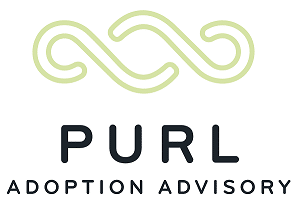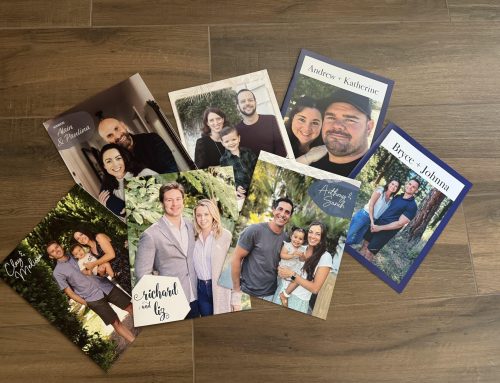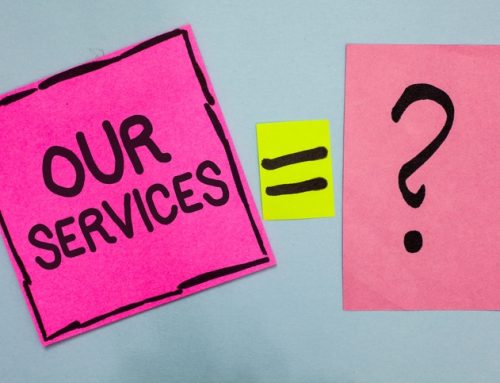
October had always been one of my favorite months of the year. Living in Arizona, it is usually the first sign of cooler weather, football is in full swing and my three favorite holidays are on the horizon. When my husband and I were home study approved and certified to adopt in early August, we were quickly matched with an expectant mother due with a baby boy in mid-October. I was so excited about that being the month we would become parents. I purchased the cutest little bear Halloween costume for him and was thrilled to begin to get to know the expectant mother that would become our son’s birth mother. I couldn’t have predicted that on October 7 a sweet baby boy would be born, but by October 10, after cuddling him for days in the hospital, I would be one of so many in the adoption world to experience what is commonly called a “disrupted” or “failed adoption”.
I had heard those terms many times when I first started learning about adoption. The term usually refers to when there is an adoption plan in place during a pregnancy but then before any consents are signed one or both of the expectant parents decide to parent the child. It often happens during the waiting period after the birth of the child, a time period I have described as an Adoptive Parent’s Labor. Often an expectant mother believes that she can go through with the adoption plan, only to see her child in person and decide to parent.
The first time I heard the term, a woman at our church told us about her experience of her first adoption disrupting and the devastation she felt, only to get a call about a baby born a few weeks later that ended up being her son. When we signed up with our consultant, she too told of her first match disrupting and then taking her child home a few months later. So I wasn’t a stranger to the term or how often it truly happens, and I tried to prepare for it during our two month match. But nothing could truly prepare me for the pain that resulted when our adoption of that sweet baby boy disrupted, a pain that wasn’t truly healed until I held my sweet baby girl in my arms a few months later.
I was absolutely crippled by emotions the days and weeks that followed our first adoption experience. We had stupidly sent a text message after he was born to all our friends and family, only to have to send another text explaining that he would not be coming home with us. So lots of people knew what had happened and called and checked on us, but at times that made it harder to move on. I couldn’t sleep, I couldn’t eat, and I cried ALL THE TIME. I couldn’t walk by the nursery we had started during our match, and the blue carseat and stroller I bought just seemed to haunt me. My husband and I took a week off of work to try and grieve. We went on a quick trip to the mountains, and I’m not sure I smiled a real smile the whole weekend, but it helped a little to get out of town. When I went back to work, I couldn’t focus and I often found myself in tears in my office. I worked in an office with glass windows, so it was very hard to hide the pain I was experiencing from the people around me. Friends didn’t know what to say, as none of them had experienced something similar and couldn’t relate. Our parents were grieving too, they had held that baby boy with us in the hospital, and were nearly as heartbroken when we went home without the boy they thought was their new grandson.
But the consistent advice I received from others who had experienced it was that it would make sense when we held the child meant for our arms. It was so, so hard to hear that at the time we experienced it firsthand, but it was so true! If that first adoption had worked out, we would never have adopted Cora, and I can’t imagine my life or our family without our sweet girl. Instead I get to see the most amazing bond between Cora and her little sister, and I thank God each day that life happened the way that it did. I must admit that December is solidified as my favorite month of the year, and I still feel slightly gloomier each October.
Here are some tips I have to surviving this difficult time, if you too end up experiencing this firsthand.
1. Don’t blame yourself, or the expectant family. No one can know what is going on inside someone else’s mind, so there isn’t much point in trying to analyze why an adoption didn’t work. It can happen for many reasons. It is not your fault. It just means that child wasn’t meant for your family. It is okay to love the child you lost, and even the expectant family, and know that whatever you’re feeling right after that experience will change over time, particularly once you’ve completed a successful adoption.
2. Grieve in your own way. You may need to experience the stages of grief — denial, anger, bargaining, depression, and acceptance to fully recover from a disrupted adoption. If you can take time off work, I’d recommend it. You can even ask a coworker to spread the word amongst co-workers while you’re gone so you don’t have to answer a lot of questions once you’re back. Better yet, try and keep the circle small when you’re matched, so you have less to explain if the adoption doesn’t go through (so much easier said than done)! While your spouse may want to get back to work, you might feel stuck in your grief. It’s okay to grieve differently, try and find something that works for each of you to move forward.
3. Accept help from others. You may need the comfort of others, so don’t be too proud to accept help from friends and family. But know that friends or family who aren’t experienced in adoption may not understand what you’re going through, so it can be helpful to join adoption support groups and get support (even virtually) from others that have experienced this unique grief.
4. Talk to a mental-health professional or trusted advisor. It never hurts to talk with a counselor who specializes in grief, loss, adoption, and/or infertility, or a pastor or trusted advisor who you think might be able to guide you through this pain.
5. Deal with the child’s room in your own way. While some can’t bring themselves to look at a child’s nursery, others find comfort sitting in the room to remember and grieve.
6. Distract yourself from your grief. Go on a quick trip to a place you’ve always wanted to visit, or go see a funny movie. Long walks, a concert, or revisiting a hobby can also be therapeutic and distracting.
7. Express your feelings. Consider writing how you feel in a journal, or in a letter to that child or expectant family you came to love (likely that you’ll never send).
8. Have a sit-down with your agency or attorney. You will also need to better understand your financial situation after a disrupted adoption (i.e. how much money is lost, how much will roll over into another situation, how much is refundable).
9. Get back in the game at your own pace, but be brave! You will likely be dubious about resuming the adoption process. You may be cynical about adoption, bitter about your experience, and resentful about the loss (even if it is primarily a financial one). It’s scary to face the prospect of another match and, possibly, another disruption. But if you truly want to adopt, give yourself whatever time you need, then move forward and find that baby meant for your family. You might consider adoption situations with short matches or with less money at risk. Just know that many people match quickly after a disrupted adoption, so when you feel the time is right, get back out there on your search for your baby!
If you have an adoption advisor, talk to them about how you’re feeling and the best strategy after a disrupted adoption. It definitely helps to talk with someone else that has experienced this unique grief and gotten to the other side of it, preferably with their baby in their arms. It is just one other reason why it is helpful to have an advisor during your adoption journey!

October had always been one of my favorite months of the year. Living in Arizona, it is usually the first sign of cooler weather, football is in full swing and my three favorite holidays are on the horizon. When my husband and I were home study approved and certified to adopt in early August, we were quickly matched with an expectant mother due with a baby boy in mid-October. I was so excited about that being the month we would become parents. I purchased the cutest little bear Halloween costume for him and was thrilled to begin to get to know the expectant mother that would become our son’s birth mother. I couldn’t have predicted that on October 7 a sweet baby boy would be born, but by October 10, after cuddling him for days in the hospital, I would be one of so many in the adoption world to experience what is commonly called a “disrupted” or “failed adoption”.
I had heard those terms many times when I first started learning about adoption. The term usually refers to when there is an adoption plan in place during a pregnancy but then before any consents are signed one or both of the expectant parents decide to parent the child. It often happens during the waiting period after the birth of the child, a time period I have described as an Adoptive Parent’s Labor. Often an expectant mother believes that she can go through with the adoption plan, only to see her child in person and decide to parent.
The first time I heard the term, a woman at our church told us about her experience of her first adoption disrupting and the devastation she felt, only to get a call about a baby born a few weeks later that ended up being her son. When we signed up with our consultant, she too told of her first match disrupting and then taking her child home a few months later. So I wasn’t a stranger to the term or how often it truly happens, and I tried to prepare for it during our two month match. But nothing could truly prepare me for the pain that resulted when our adoption of that sweet baby boy disrupted, a pain that wasn’t truly healed until I held my sweet baby girl in my arms a few months later.
I was absolutely crippled by emotions the days and weeks that followed our first adoption experience. We had stupidly sent a text message after he was born to all our friends and family, only to have to send another text explaining that he would not be coming home with us. So lots of people knew what had happened and called and checked on us, but at times that made it harder to move on. I couldn’t sleep, I couldn’t eat, and I cried ALL THE TIME. I couldn’t walk by the nursery we had started during our match, and the blue carseat and stroller I bought just seemed to haunt me. My husband and I took a week off of work to try and grieve. We went on a quick trip to the mountains, and I’m not sure I smiled a real smile the whole weekend, but it helped a little to get out of town. When I went back to work, I couldn’t focus and I often found myself in tears in my office. I worked in an office with glass windows, so it was very hard to hide the pain I was experiencing from the people around me. Friends didn’t know what to say, as none of them had experienced something similar and couldn’t relate. Our parents were grieving too, they had held that baby boy with us in the hospital, and were nearly as heartbroken when we went home without the boy they thought was their new grandson.
But the consistent advice I received from others who had experienced it was that it would make sense when we held the child meant for our arms. It was so, so hard to hear that at the time we experienced it firsthand, but it was so true! If that first adoption had worked out, we would never have adopted Cora, and I can’t imagine my life or our family without our sweet girl. Instead I get to see the most amazing bond between Cora and her little sister, and I thank God each day that life happened the way that it did. I must admit that December is solidified as my favorite month of the year, and I still feel slightly gloomier each October.
Here are some tips I have to surviving this difficult time, if you too end up experiencing this firsthand.
1. Don’t blame yourself, or the expectant family. No one can know what is going on inside someone else’s mind, so there isn’t much point in trying to analyze why an adoption didn’t work. It can happen for many reasons. It is not your fault. It just means that child wasn’t meant for your family. It is okay to love the child you lost, and even the expectant family, and know that whatever you’re feeling right after that experience will change over time, particularly once you’ve completed a successful adoption.
2. Grieve in your own way. You may need to experience the stages of grief — denial, anger, bargaining, depression, and acceptance to fully recover from a disrupted adoption. If you can take time off work, I’d recommend it. You can even ask a coworker to spread the word amongst co-workers while you’re gone so you don’t have to answer a lot of questions once you’re back. Better yet, try and keep the circle small when you’re matched, so you have less to explain if the adoption doesn’t go through (so much easier said than done)! While your spouse may want to get back to work, you might feel stuck in your grief. It’s okay to grieve differently, try and find something that works for each of you to move forward.
3. Accept help from others. You may need the comfort of others, so don’t be too proud to accept help from friends and family. But know that friends or family who aren’t experienced in adoption may not understand what you’re going through, so it can be helpful to join adoption support groups and get support (even virtually) from others that have experienced this unique grief.
4. Talk to a mental-health professional or trusted advisor. It never hurts to talk with a counselor who specializes in grief, loss, adoption, and/or infertility, or a pastor or trusted advisor who you think might be able to guide you through this pain.
5. Deal with the child’s room in your own way. While some can’t bring themselves to look at a child’s nursery, others find comfort sitting in the room to remember and grieve.
6. Distract yourself from your grief. Go on a quick trip to a place you’ve always wanted to visit, or go see a funny movie. Long walks, a concert, or revisiting a hobby can also be therapeutic and distracting.
7. Express your feelings. Consider writing how you feel in a journal, or in a letter to that child or expectant family you came to love (likely that you’ll never send).
8. Have a sit-down with your agency or attorney. You will also need to better understand your financial situation after a disrupted adoption (i.e. how much money is lost, how much will roll over into another situation, how much is refundable).
9. Get back in the game at your own pace, but be brave! You will likely be dubious about resuming the adoption process. You may be cynical about adoption, bitter about your experience, and resentful about the loss (even if it is primarily a financial one). It’s scary to face the prospect of another match and, possibly, another disruption. But if you truly want to adopt, give yourself whatever time you need, then move forward and find that baby meant for your family. You might consider adoption situations with short matches or with less money at risk. Just know that many people match quickly after a disrupted adoption, so when you feel the time is right, get back out there on your search for your baby!
If you have an adoption advisor, talk to them about how you’re feeling and the best strategy after a disrupted adoption. It definitely helps to talk with someone else that has experienced this unique grief and gotten to the other side of it, preferably with their baby in their arms. It is just one other reason why it is helpful to have an advisor during your adoption journey!



